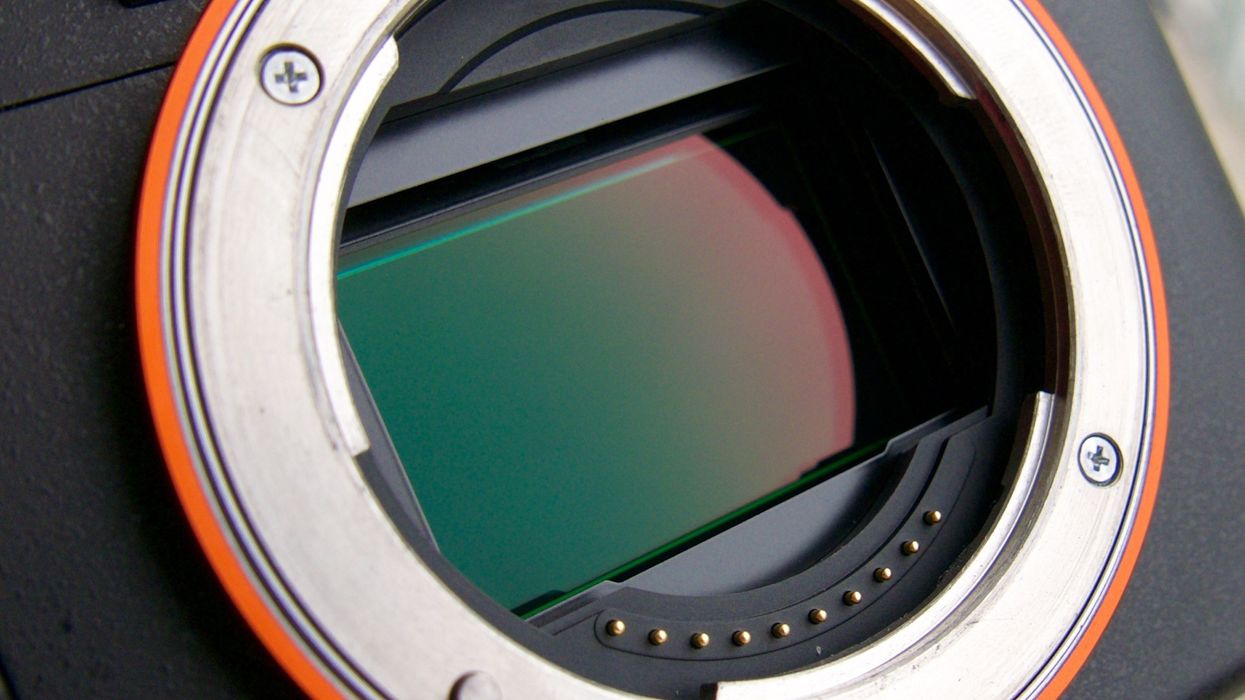Sony 8K News: What Does 8K Really Mean for Filmmakers?
With rumors of Sony developing a new 8K full frame sensor, let’s look at what 8K video recording really means for filmmakers.

In case you missed the news, camera rumors of Sony announcing a new 8K full frame sensor seem to be both exciting (and polarizing) the digital filmmaking community. As we’ve already covered at No Film School, 8K has been buzzing for some time / heating up recently with rumors of a new 8K-capable Canon C300 and RED’s Helium making some historic 8K space accomplishments.
But, as many are pointing out, what does this new “8K revolution” actually mean for filmmakers? Is it a bright new future, or just an unnecessary resolution arms race between competing manufacturers?
Is Sony Making an 8K Video Camera?
It wasn’t long ago that 4K was a similar outrageous buzzword, and now here we are with a whole lineup of 4K prosumer cameras on the market. Which is and isn’t necessarily a good thing - see for yourself what kind of results these 4K mirrorless cameras deliver at their respective price points.
Shooting 8K Footage
So there are number of issues that any hypothetical 8K video recording would present. Shooting 8K footage would require a camera built to handle not double, but four times the data. It’s a stretch to think a new Sony A7s body would be compact enough to handle four times the data - same with other brands and similar models.
Other issues like lenses and camera weight come into question as well. If your expectation for upgrading to 8K revolves around just buying a new camera that’s similar to your 4K model, you may find that your previous lenses and gear might not be 8K-friendly.
Editing 8K Footage
You’ll also need to consider editing 8K footage. While it may seem that (with the use of proxies and other workarounds) that 4K video editing has just now caught up with the camera capture technology (like this example of a new standard MacBook Air editing 4K).
8K video editing, when outputting for online and other non-cinema quality presentations, does offer a great deal of upside however. With four times the data all types of possibilities for compositionional cropping and framing and more advanced stabilization and coloring are quite tantalizing...
But what kind of processing power would one have to have to realistically work with 8K footage on your run-of-the-mill video production? Will PCs, Macs, and editing programs like Premiere Pro, Final Cut and DaVinci Resolve be ready to render and export 8K footage here off the bat?
Should You Buy an 8K Camera?
This seems to be the biggest issue with the recent Sony news. Yes, 8K video is most probably in the cards in the near future, but for so many owners of strong 4K mirrorless cameras like the Sony A7 III, Panasonic GH5 and early investors in the Nikon Z7 or the Blackmagic Pocket Cinema Camera 4K, does this mean you’ll soon be left in the dust and forced to make a pricey upgrade?
The answer is probably no. This 8K news - and the probable subsequent similar news from other manufacturers that will soon follow (like this generic rumor from Canon of a “new high resolution Canon EOS R”) - might mean a shift is coming, but it shouldn’t be actually realized anytime soon. There will be growing pains just in the same way as there have been with the previous 4K revolution - and will undoubtedly be for 16K, 32K, etc… in the future.
Speaking of which, if you’re interested, here’s a peek into how one filmmaker was able to shoot the world’s first 16K short film! In case you need any more insights into this crazy new high resolution world.














